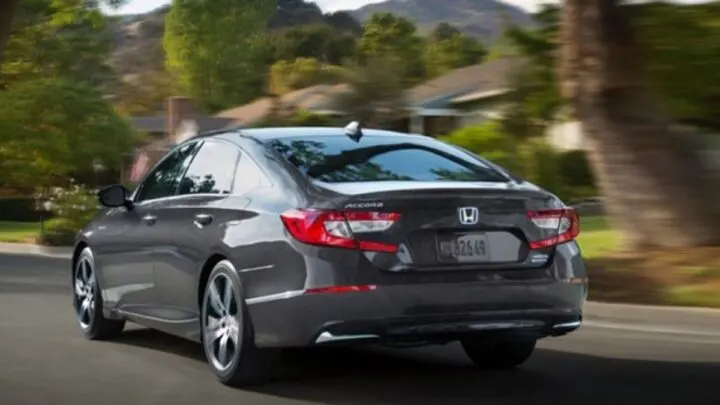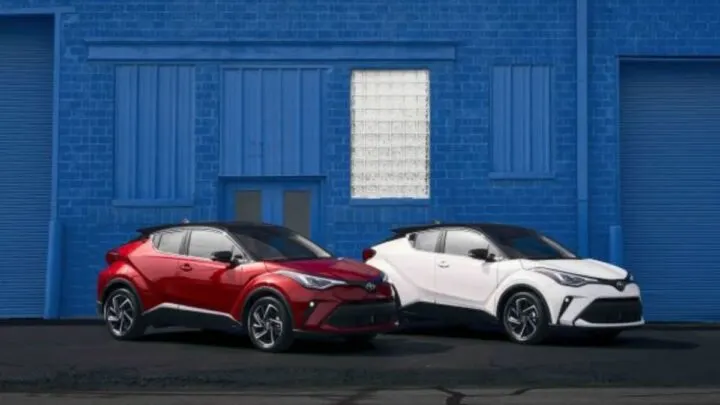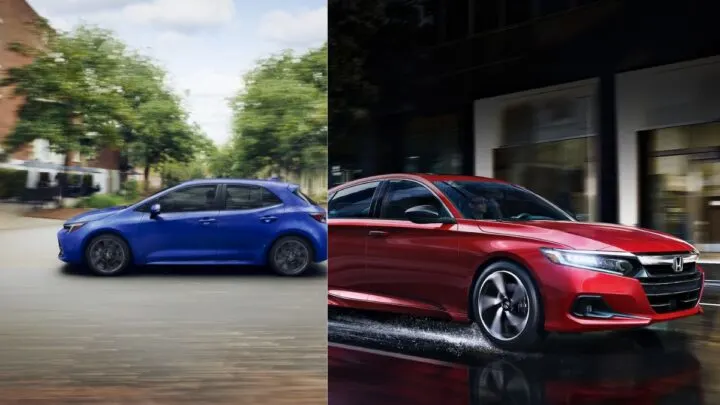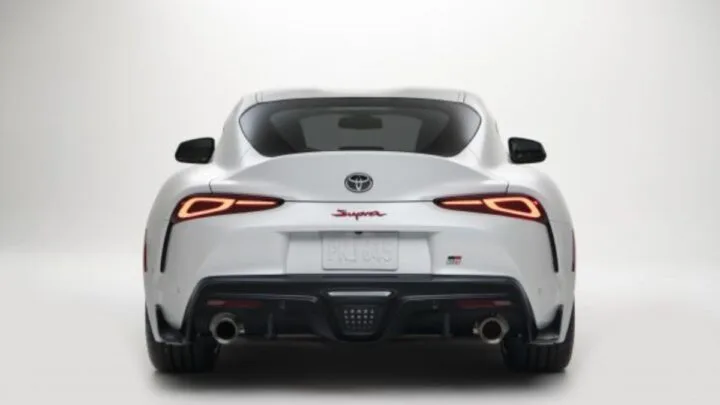A debate that’s been going on for decades and might as well continue for a time to come is which is the better brand between the Honda and Toyota.
And it gets even more confusing when you’re in the market looking to buy a new vehicle.
Should you go for Honda? Or should you go for Toyota?
It often depends on what kind of vehicle you want or need that will determine the outcome of this, as both brands offer great qualities.
But which is the better brand? Read on to find out.
Honda vs. Toyota: Which Brand Is More Reliable?
A vast majority of the world’s population acquire automobiles for daily commute to work, school, or personal use.
Therefore, reliability is a crucial consideration vital to how we value a brand.
In that regard, Japanese auto manufacturers are known globally for making some of the most reliable vehicles that have performed exceptionally well for decades.
It gets more complicated when comparing two brands with similar production qualities and ethics.
Between Honda and Toyota, which brand is more reliable?
Well, a 2022 study by Consumer Reports indicates that Japanese vehicles are highly reliable, with Lexus, Mazda, Toyota, Honda, Subaru, and Nissan all joining in the top 10 most reliable brands.
More specifically, Toyota comes in third with an overall score of 71/100 compared to Honda’s sixth place and 66/100 overall score.
Moreover, a recent study by iSeeCars shows that close to 2.3% of Toyota cars on the roads have over 200,000 miles on their odometers.
In comparison, only 1.9% of Honda cars on the roads have achieved the same milestone.
And compared to the general average of 1.2% across all manufacturers, we can clearly see that both Honda and Toyota are reliable, but Toyota’s reliability is generally seen as much better.
Why Is Toyota More Reliable Than Honda?
Toyota’s reliability stems from a myriad of possible reasons that contribute to making the car cheap to maintain and dependable.
And I’m not saying that Hondas are unreliable. Actually, the only American brand with better reliability ratings than Honda is Buick.
Then that begs the question as to why Toyota is more reliable than Honda? Here’s why.

Toyota Takes Time To Introduce New Features
A reliability study by Consumer Reports concluded that new or redesigned models usually have their fair share of mechanical and electronic issues.
Therefore, any company that introduces new features to their vehicle annually will, generally, have lower reliability ratings.
Actually, we often see massive recalls from some of these companies due to issues such as faulty airbags, fire risks, and non-working electronics.
On their part, Toyota takes years to improve the existing features rather than rushing to add what’s appealing to the market.
Consequently, you’ll find several editions of their cars with relatively similar features.
Furthermore, they’ll update their safety, driver assistance, comfort, and infotainment systems to keep up with the growing automobile industry.
However, they’ll often retain their drivetrains, powertrains, and essential features for a long time. To Toyota, if it’s working, don’t interfere.
On the downside, Toyotas have been labeled uninspiring, old-school, and boring for their lack of significant updates or new technological breakthroughs.
Focus on Function Over Aesthetics
One area that Toyota excels over other automobile manufacturers is their powertrains and drivetrains.
To be specific, Toyota engines last a lifetime! Or, to be realistic, their engines usually last more than 200,000 miles before requiring any significant repairs.
Additionally, Toyota’s focus on function over aesthetics means that their vehicles are just “basic and simple.”
You won’t get the best-in-class interiors, cargo spaces, infotainment systems, acceleration, or top-end speed from a Toyota.
Instead, buying a Toyota means getting a car that can move you to your destination without much luxury.
On the contrary, they have some of the best engines in the fair-priced automobile class.
And obviously, you’ll get better engines if you go with some of their performance models, such as the GR Supra.
Continuous Improvement and Longevity
Toyota engines are durable, dependable, and low maintenance compared to most other brands.
A reason for their longevity is that Toyota tests and retests their vehicles before releasing them to the market.
The company tests its prototypes to failure on multiple occasions while noting and repairing potential weak points and defects.
The result is that over 80% of Toyota cars sold in the past two decades are still road worthy.
Furthermore, quality is the cornerstone of Toyota’s success. Their well-engineered vehicles are produced through the Kaizen or continuous improvement approach.
The Kaizen approach teaches us to continuously improve a system as small positive changes can result in bigger improvements.
Honda vs. Toyota: Which Company Produces Better Engines?
It may come as a surprise, but Honda often produces better engines than Toyota.
As shown, Toyota engines are some of the most reliable ones you’ll find on the market.
However, their reliability comes at a cost as their powertrains are meant for commuting and nothing much.
On the other hand, Honda focuses on high-performance engines with excellent accelerations and better capacities than those found in same-class Toyota models.
Additionally, Toyota uses the same design approach for most of its cars, while Honda crafts each vehicle model uniquely while targeting specific market segments.
And while Toyota has the high-performing Supra in its lineup, Honda has a ton of cars that surpass any Toyota, performance-wise.
For example, while running on a high-output VTEC 1.5-liter turbocharged 4-cylinder engine, the Honda Civic Si can give any Toyota a run for its money based solely on performance.
The engine has a broad power band and peaks at 192 lb-ft of torque and 200 horsepower.
With the new designs, the car’s torque comes 300 rpm lower than the pre-2020 designs meaning that it has even better acceleration.
Moreover, the Honda Accord Sport 2.0 outperforms the V6 Toyota Camry, and the list continues.

Honda vs. Toyota: The Battle of the Hybrids
With the ever-increasing fuel prices and the need for sustainability, more and more people are moving towards hybrid cars.
And in this regard, Honda and Toyota have excellent hybrid car lineups that you ought to check out.
But, in this battle, who’s the clear winner?
Well, it depends. Toyota has a wide variety of hybrid cars compared to Honda. Their vehicles have excellent fuel economies, are more reliable, and are cheaper than the Hondas.
However, even the highest-rated Toyota hybrid model doesn’t come close to the Hondas regarding performance and handling.
As of 2022, Toyota has 10 hybrid models ranging from sedans to minivans. In contrast, Honda has only three available hybrids.
And at an MSRP of $24,050, the Corolla Hybrid is the cheapest, with an outstanding fuel economy of 52/53 MPG on the city roads and highways, respectively.
However, some might feel the car is underpowered as its engine produces a measly 121 horsepower.
Furthermore, Toyota hybrids like the Prius don’t attract performance enthusiasts due to their “pedestrian acceleration.” The all-wheel-drive (AWD) Prius takes an unimpressive 11 seconds to get from 0 to 60 miles per hour.
Honestly, that sometimes can be too slow, and you might struggle to merge lanes and keep up with highway and city traffic. In comparison, a Honda Insight Hybrid can achieve the same speed benchmark in 7.7 seconds.
Other vehicles in the lineup include the Camry Hybrid, Toyota RAV4, and Sienna minivan.
Honda has models such as the Accord Hybrid and CR-V Hybrid in its lineup.
The cars perform well, and one such as the Honda Accord Hybrid outshines the Toyota Camry Hybrid.
It has better acceleration, smooth handling, and appealing interiors than its Toyota counterpart.
However, you’ll have to sacrifice some fuel economy points to enjoy what this car offers.
Honda vs. Toyota: Which Brand Is Cheaper To Buy and Maintain?
When it comes to price, Toyota tends to be slightly cheaper than the Hondas. But the price margins are so fine that one can assume that one lowers its price as a marketing strategy.
For example, the 2022 Honda CRV starts at $26,800 while the Toyota RAV4 begins just $175 more at $26,975.
And generally, whether you’re looking at sedans, minivans, trucks, or vans, the two brands are almost equally priced across the board.
The base 2022 Toyota Corolla LE trim starts at $22,100. In comparison, the 2022 Honda Civic base LX sedan model has an MSRP of $23,645.
That’s not much difference considering that base Honda models have more features than equally-rated Toyotas.
Let’s take a look at how comparable models’ MSRP differ between the two brands.
- Honda Civic $22,550 vs. Toyota Corolla $20,425
- Honda Insight $25,760 vs. Toyota Prius $25,075
- Honda Accord $26,520 vs. Toyota Camry $25,845
- Honda Odyssey $37,340 vs. Toyota Sienna $35,285
- Honda Ridgeline $38,140 vs. Toyota Tacoma $27,150
- Honda Pilot $38,080 vs. Toyota Highlander $35,855
- Honda CR-V $26,800 vs. Toyota RAV4 $26,975
- Honda HR-V $23,650 vs. Toyota C-HR $24,130
- Honda Passport $ 38,370 vs. Toyota 4Runner $38,105
As shown, some Toyota base models are costlier than their Honda counterparts.
Hence, the price tag shouldn’t influence your choice of vehicle or act as a base to compare the two brands.

Maintenance-wise, RepairPal estimates that Hondas ($428 per year) are cheaper to maintain than Toyotas ($441 per year).
As we can see, the maintenance costs are relatively equal and once more shouldn’t be a basis to forgo one for the other.
General Toyota problems usually revolve around:
- Failed fuel pumps
- Engine shut off
- Electronics failure
- Jumpy gear changes
- Defective fuel cells
- Brake clunking
General Honda problems usually revolve around:
- Poorly installed airbags
- Overheating power window switch
- Power steering hose failure
- Soft brake pedal feel
- Faulty fuel pumps
Honda vs. Toyota: Safety Ratings
Accidents happen occasionally, and most people are more comfortable driving around in a car with maximum safety ratings.
And while both brands usually get very high safety ratings, Honda vehicles edge Toyotas across all models.
However, I don’t particularly appreciate using this as a score card for both brands, as vehicle safety boils down to individual models.
But generally, all Toyota vehicles have the Toyota Safety Sense features that include technologies such as:
- Pre-Collision System
- Lane Departure Alert
- Automatic High Beam
- Road Sign Assist
- Pre-Collision System with Pedestrian Detection
- Adaptive Cruise Control
On the other hand, Honda has the Honda Sensing that features the following technologies:
- Collision Mitigation Braking System
- Road Departure Mitigation System
- Lane Keeping Assist
- Traffic Sign Recognition
- Adaptive Cruise Control
- Blind Spot Information System
- Cross Traffic Monitor
- Auto High-Beam Headlights
Honda vs. Toyota: Sales
In terms of sales, Toyota is the best-selling car brand in the world; hence Honda and any other brand for that matter can’t quite compare.
According to Statistica, the Toyota Corolla had a whopping 1.1 million sales in 2021, followed closely by another Toyota, the RAV4, with 1 million sales.
Coming in third is the Ford F-Series with 0.86 million sales.
The highest selling Honda is the CR-V, with a total of 0.73 million sales. Other Toyotas in the top ten included Camry (0.69 million) and Yaris (0.59 million).
The other popular Honda car in the top 10 is the Honda Civic coming in at 9th with 0.59 million global sales.

The Takeaway: Honda vs. Toyota
The battle between Honda and Toyota has been going on for decades, with each brand trying to outwit the other and gain better market shares.
Honestly, their competition has always been healthy and beneficial to buyers, as the two brands produce highly reliable cars.
Their price tags are almost similar, both feature excellent engines and are durable.
However, Toyota cars are more reliable and durable and generally cost marginally less than Hondas.
On their part, the Hondas have better engines, bigger cargo spaces, excellent handling, and better driver assistance features.
And in conclusion, the battle between the two brands is close, and your choice should be influenced by individual car models rather than the overall brand.
